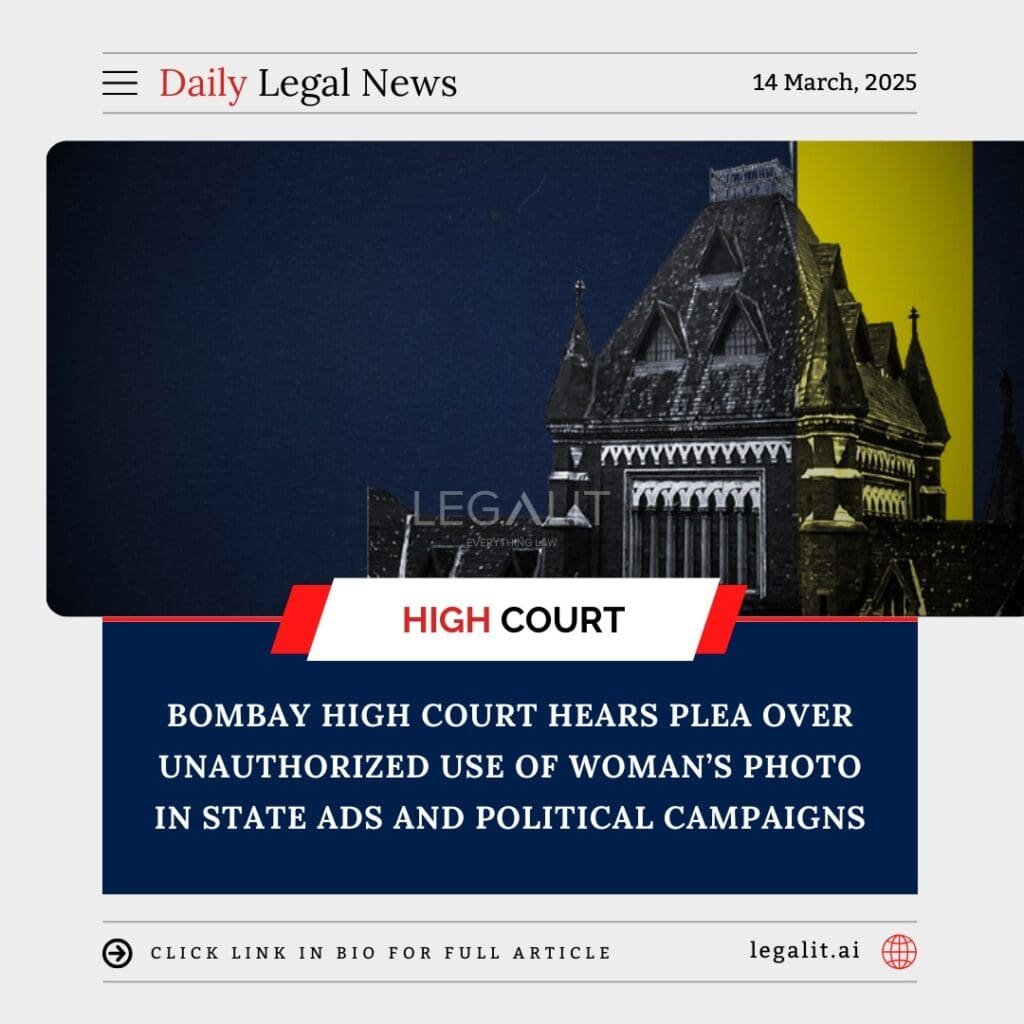
Background
A woman has approached the Bombay High Court, challenging the unauthorized use of her photograph in government advertisements and political campaigns. The petitioner claims that her image was used without her consent in multiple public awareness campaigns initiated by the state government, as well as in political promotional materials. She contends that such actions amount to a violation of her right to privacy, misuse of personal identity, and an infringement of her dignity.
The issue came to light when the petitioner discovered her image being widely circulated in posters, billboards, and digital media promotions related to government welfare schemes and political events. She alleges that neither she nor her family was informed or asked for permission before the images were published, leading to distress and reputational concerns.
Court’s Rationale
The Bombay High Court, while hearing the matter, raised critical questions regarding the unauthorized use of individuals’ images in government and political campaigns. The court focused on the following key issues:
- Right to Privacy and Personal Autonomy
- The court noted that the *right to privacy, as upheld in the Supreme Court’s landmark judgment in *Justice K.S. Puttaswamy v. Union of India (2017), protects individuals from unauthorized use of their likeness.
- It observed that using a citizen’s photograph without consent for publicity purposes can amount to a breach of privacy.
- Misuse of Identity and Reputation
- The petitioner argued that the unauthorized usage misrepresented her association with political or governmental causes, potentially affecting her social and professional reputation.
- The court acknowledged that misappropriation of an individual’s identity without their consent could be legally challenged under Article 21 of the Constitution, which guarantees the right to life and dignity.
- Need for Consent in Publicity Materials
- The court questioned the legal basis on which the government or political entities used the petitioner’s image without her approval.
- It emphasized that individuals must be given the opportunity to provide informed consent before their photographs are used in public campaigns.
- Potential Violation of Intellectual Property Rights
- The petitioner contended that the use of her image in political advertisements could also raise concerns under copyright and personality rights laws.
- The court acknowledged that public figures often have commercial rights over their images, and even private individuals may have legal remedies if their likeness is used without permission.
Existing Legal Framework and Government Response
The case brings into focus various legal provisions relevant to the issue:
- Right to Privacy under Article 21 – Protects against unauthorized use of personal identity.
- Information Technology Act, 2000 – Includes provisions against misuse of digital content, including personal images.
- Copyright Act, 1957 – Grants individuals certain protections against unauthorized reproduction of their likeness.
- Consumer Protection Act, 2019 – Prohibits misleading advertisements, which may extend to unauthorized use of a person’s image for endorsements.
The state government, in its defense, has claimed that the image was used in good faith as part of a larger awareness drive and that there was no intent to cause harm. However, the court has sought clarification on whether the petitioner’s consent was obtained and what guidelines exist for using citizen images in official advertisements.
Implications of the Case
The High Court’s decision could have wide-ranging consequences:
- For Citizens’ Rights – The case could strengthen legal protections against unauthorized use of personal images in advertisements and political campaigns.
- For Government and Political Entities – The ruling may lead to stricter guidelines on obtaining explicit consent before using individuals’ photographs.
- For Advertising and Media Practices – Agencies handling government and political campaigns may need to adopt more rigorous consent mechanisms to avoid legal repercussions.
Conclusion
The Bombay High Court’s intervention in the case highlights the growing significance of privacy rights and personal identity protection in India. The ruling, once delivered, could set a precedent for how state agencies and political entities handle personal images in public campaigns, reinforcing the necessity of informed consent and ethical advertising practices.